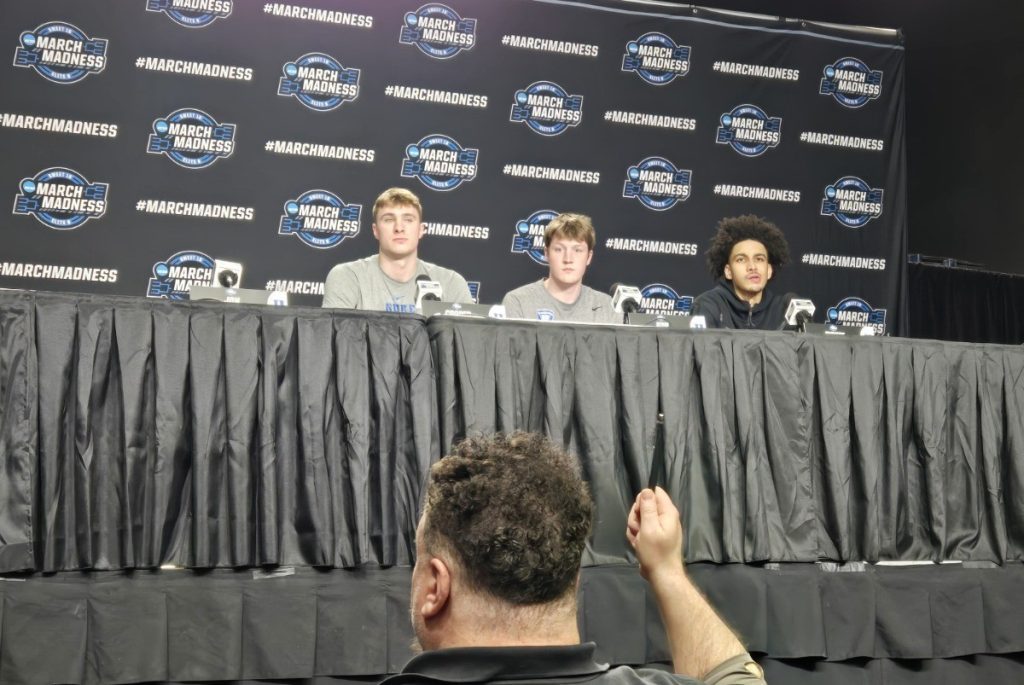US authorities continue their extensive investigation into an illegal betting operation linked to both professional and collegiate basketball.
The NCAA men’s basketball tournament concluded on Monday night (April 7) with an impressive comeback from the University of Florida, which overturned a 12-point deficit in the second half to defeat Houston in the national championship game.
In previous tournaments, the loss for the Cougars might have caused bet enthusiast Jim McIngvale significant distress, given the Houston furniture store owner’s tendency to place multi-million dollar wagers in support of the Cougars. Last year, he was in line to gain $15 million (£11.7 million/€13.6 million) if Coach Kelvin Sampson’s team triumphed. However, leading up to this year’s Final Four, no substantial bets from McIngvale were reported.
To encourage responsible gambling, the NCAA has advised bettors to stay within their limits. During March Madness, the NCAA promoted its “Draw the Line” educational initiative concerning gambling risks, showcasing advertisements and displaying a courtside stanchion at the Final Four.
Social Media Backlash
Recently, the NCAA hosted the East Regional in Newark, New Jersey, which was among the first states to legalize sports betting following the PASPA ruling in 2018. Contrary to most areas, New Jersey forbids bets on college events within its borders.
On the day of the games, the New Jersey Division of Gaming Enforcement (DGE) issued a cease-and-desist directive to two prediction markets, Kalshi and Robinhood, for including sports event outcomes in their betting options. Robinhood’s New Jersey platform subsequently removed their college basketball betting markets by a March 28 deadline.
Duke’s standout Cooper Flagg, who was named the 2025 Naismith Player of the Year, showcased his skills in Newark, leading the Blue Devils to the Final Four for the second time in four years. Throughout the regular season, Flagg notably guided his team to victories against their fierce rivals, North Carolina.
Minimizing the Risks
Before a Sweet 16 match against Arizona, Flagg mentioned that several teammates had experienced similar aggressive messaging from bettors via social media.
“We just kind of see it and laugh at it,” Flagg responded to an inquiry from iGB.
Flagg, anticipated to be the top pick in the NBA draft this June, concluded the season averaging 19.2 points, 7.5 rebounds, and 4.2 assists per game. However, even he suffered from a subpar performance, missing the over bet during Duke’s win against Alabama when he scored only 16 points.
Investigation into Betting Anomalies
In January, federal authorities detained Shane Hennen, a professional poker player, at Harry Reid International Airport while he attempted to board a flight to Colombia via Panama. Hennen allegedly played a key role in a scheme that orchestrated illicit financial transactions and fraudulent sports wagers amounting to millions, according to court documents.
This betting ring is under scrutiny for a point-shaving scandal identified as potentially among the “most pervasive” in North American sports history by Sports Illustrated.
In 2024, IC360, a sports betting integrity organization, documented odd offshore betting tendencies surrounding Temple basketball games, particularly a March 7 game against UAB which exhibited suspicious line changes indicative of irregular betting activities.
Educational Initiatives in Sports Betting
Kevin Young, a former assistant coach with the Phoenix Suns, recently concluded his inaugural season at BYU. While in Newark for the NCAA Tournament, Young recalled the rigorous educational protocols in the NBA highlighting the repercussions of sharing inside information susceptible to gambling misuse.
While college teams like BYU are not bound to disclose their starting lineups until moments before the game, the NBA mandates earlier announcements regarding injuries and inactive players.
“I’m a little surprised that college isn’t more that way,” he commented.
Legislative Responses to Prop Betting
In the Sweet 16, BYU was defeated by Alabama in a score of 113-88, while Duke triumphed against Arizona, scoring 100-93.
Across the broader landscape, Arizona’s head coach Tommy Lloyd believes efforts to educate players on gambling dangers have been adequate. He addressed recent sports betting scandals, stating: “There are some sick individuals out there taking advantage of those kids.”
A bill was put forth in North Carolina aimed at banning prop bets on college athletes, contributing to a growing list of 18 states and Washington DC that have enacted similar prohibitions.
As per an American Gaming Association report released prior to March Madness, it was anticipated that bettors would stake approximately $3.1 billion on this year’s men’s and women’s NCAA tournaments combined.
During last year’s Sweet 16, Illinois coach Brad Underwood expressed concern over the possibility of bettors wagering on the outcome of the opening tip. Lloyd also shared his apprehension regarding the intense harassment directed at players from frustrated bettors.
“I don’t want them to feel crushed over a free throw that shifts the point spread,” he emphasized.



